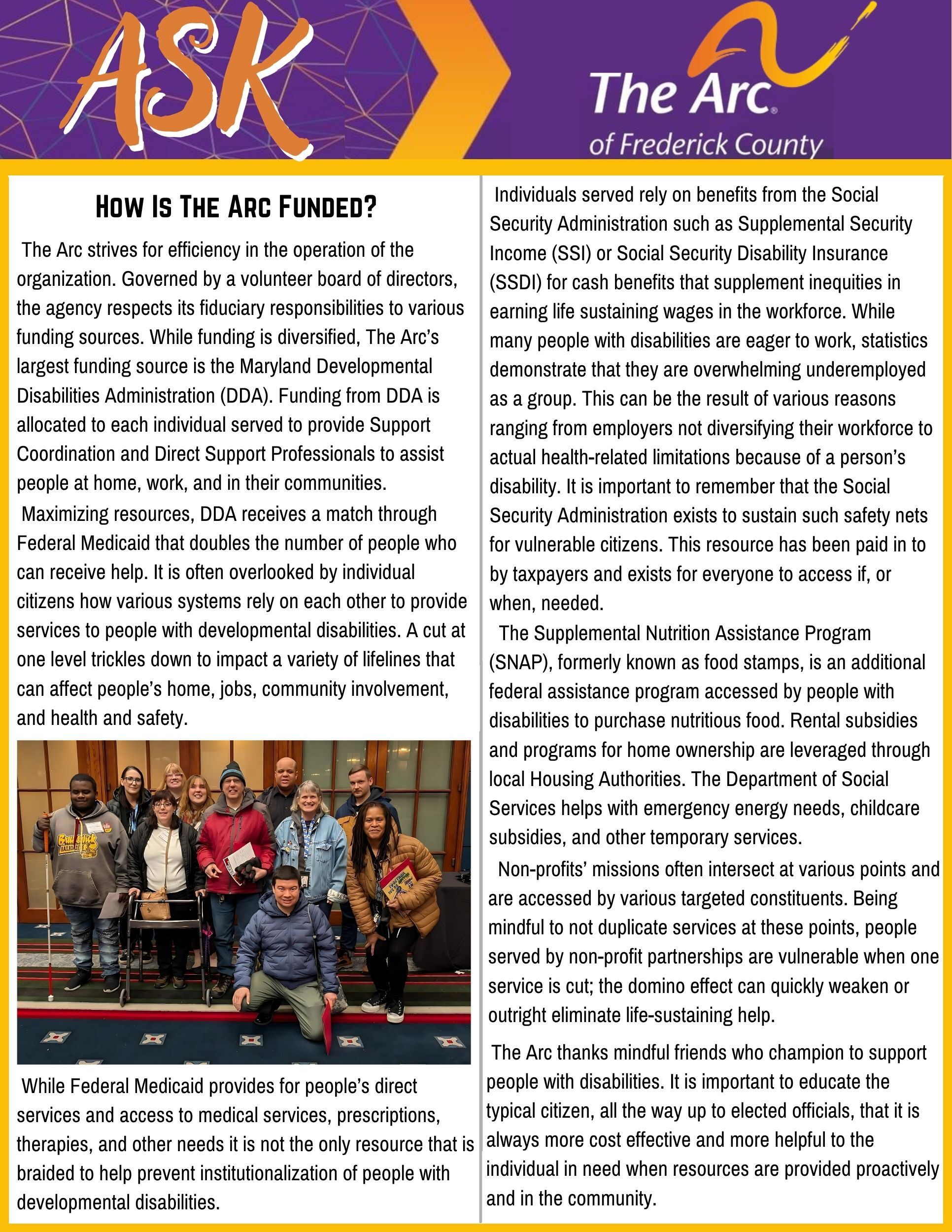Ask The Arc
How Is The Arc Funded?

The Arc strives for efficiency in the operation of the organization. Governed by a volunteer board of directors, the agency respects its fiduciary responsibilities to various funding sources. While funding is diversified, The Arc's largest funding source is the Maryland Developmental Disabilities Administration (DDA). Funding from DDA is allocated to each individual served to provide Support Coordination and Direct Support Professionals to assist people at home, work, and in their communities.
Maximizing resources, DDA received a match through Federal Medicaid that doubles the number of people who can receive help. It is often overlooked by individual citizens how various systems rely on each other to provide services to people with developmental disabilities. A cut at one level trickles down to impact a variety of lifelines that can affect people's home, jobs, community involvement, and health and safety.
While Federal Medicaid provides for people's direct services and access to medical services, prescriptions, therapies, and other needs, it is not the only resource that is braided to help prevent institutionalization of people with developmental disabilities.
Individuals served rely on benefits from the Social Security Administration such as Supplemental Security Income (SSI) or Social Security Disability Insurance (SSDI) for cash benefits that supplement inequities in earning life sustaining wages in the workforce. While many people with disabilities are eager to work, statistics demonstrate that they are overwhelming underemployed as a group. This can be the result of various reasons ranging from employers not diversifying their workforce to actual health-related limitations because of a person's disability. It is important to remember that the Social Security Administration exists to sustain such safety nets for vulnerable citizens. This resource has been paid in to by taxpayers and exists for everyone to access if, or when, needed.
This Supplemental Nutrition Assistance Program (SNAP), formerly known as food stamps, is an additional federal assistance program accessed by people with disabilities to purchase nutritious food. Rental subsidies and programs for home ownership are leveraged through local Housing Authorities. The Department of Social Services helps with emergency energy needs, childcare subsidies, and other temporary services.
Non-profits' missions often intersect at various points and are accessed by various target constituents. Being mindful to not duplicate services at these points, people served by non-profit partnerships are vulnerable when one service is cut; the domino effect can quickly weaken or outright eliminate life-sustaining help.
The Arc thanks mindful friend who champion to support people with disabilities. It is important to educate the typical citizen, all the way up to elected officials, that it is always more cost effected and more helpful to the individual in need when resources are provided proactively and in the community.

